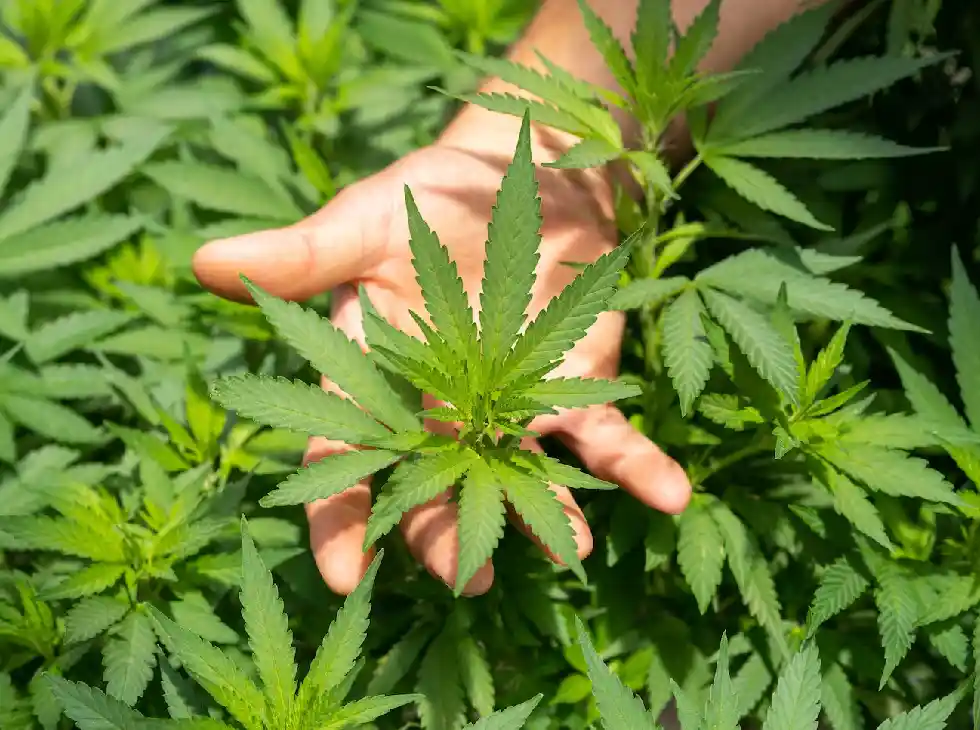CBD, or cannabidiol, has captured the interest of many individuals seeking natural remedies and wellness solutions. However, as CBD continues to gain popularity, numerous questions arise regarding its uses, benefits, and potential risks. This comprehensive article will delve into the frequently asked questions about CBD, providing informative answers supported by the latest research and expert opinions. We aim to empower readers with valuable knowledge to make informed decisions about CBD usage by addressing these queries.
What is CBD, and how does it work?
CBD, derived from the cannabis plant, is a natural compound known as a cannabinoid. Unlike its psychoactive counterpart THC, CBD does not induce a “high.” Rather than acting independently, CBD engages with the body’s intricate endocannabinoid system (ECS), which consists of receptors and enzymes responsible for upholding equilibrium and governing diverse physiological processes. Through modulation of the ECS, CBD can impact mood, pain sensitivity, and immune reactivity. (1)
What are the potential benefits of CBD?
Research suggests that CBD exhibits a wide range of potential therapeutic benefits. It has shown promise in managing chronic pain, anxiety, epilepsy, and sleep disorders. Furthermore, CBD’s attributes as an anti-inflammatory and antioxidant agent have captured attention for potential applications in skin care and enhancing overall well-being. Nevertheless, it’s crucial to emphasize that additional research is necessary to understand CBD’s modes of operation and its efficacy in particular circumstances. (2)

Notable comments by experts on the benefits and risks of CBD
Experts in the field have shared their insights on CBD:
– Dr. Sanjay Gupta, a renowned neurosurgeon, and CNN Chief Medical Correspondent, acknowledged CBD’s potential as a game-changer in medicine.
– The World Health Organization (WHO) states that CBD may have therapeutic potential for treating various conditions, including epilepsy, anxiety, and chronic pain.
– Dr. Nora Volkow, Director of the National Institute on Drug Abuse (NIDA), affirms that the evidence strongly suggests CBD’s therapeutic value for various conditions.
– Dr. Ethan Russo, a respected neurologist and cannabis researcher, highlights CBD’s promise in preclinical and clinical trials for neurological disorders.
– Dr. Michael J. Barnes, Chairman of the Medical Cannabis Clinicians Society, emphasizes CBD’s potential in managing chronic pain without the risk of addiction or overdose associated with opioids.
These expert comments underscore the growing recognition of CBD’s therapeutic potential while also emphasizing the need for further research to understand its full scope of benefits and risks.
What are the possible side effects of CBD?
CBD is typically well-tolerated, and serious adverse effects are uncommon. Yet, a subset of individuals might encounter mild symptoms like drowsiness, dry mouth, or shifts in appetite. These reactions are generally short-lived and fade over time. It’s worth acknowledging that CBD could interact with specific medications, prompting individuals to seek counsel from a healthcare expert, mainly if they are using prescribed drugs. (4)
Factors to Consider Before Choosing the Right CBD
When shopping for CBD products, several factors should be taken into consideration:
– Quality and Source: Look for products sourced from reputable manufacturers who adhere to good manufacturing practices (GMP) and undergo third-party testing to ensure potency and purity.
– Extraction Method: CO2 extraction is considered a reliable method that preserves the integrity of the CBD compound.
– Full-spectrum vs. Isolate: Full-spectrum CBD products contain other beneficial compounds from the cannabis plant, potentially enhancing the overall therapeutic effect through the entourage effect.
– CBD Concentration: Pay attention to the CBD concentration per serving to determine the appropriate dosage for your needs.
– Product Type: Choose a product that aligns with your preferences, are CBD oil tinctures, capsules, topicals, or edibles.
By considering these factors, individuals can make informed decisions and select high-quality CBD products that best suit their needs.
Does CBD have abuse potential?
CBD (cannabidiol), widely lauded for its potential health benefits, is not without its concerns regarding misuse. While CBD is non-intoxicating and generally considered safe, instances of abuse have emerged, often tied to misconceptions or mislabeling. (5)
According to a report by the National Institute on Drug Abuse (NIDA), CBD’s increasing popularity has led to a notable rise in emergency department visits attributed to its misuse. From 2015 to 2019, the number of such visits in the United States more than doubled, highlighting the need for caution.
A significant challenge is the misperception that CBD products are entirely risk-free. In pursuit of potential therapeutic effects, some individuals might consume excessive amounts, leading to adverse reactions like dizziness, nausea, and fatigue. Moreover, unregulated products might contain varying levels of CBD or even traces of THC, the psychoactive compound in marijuana, potentially causing unintended psychotropic effects.
To address this issue, proper education is crucial. Consumers should be informed about appropriate dosages, product quality, and potential interactions with medications. Regulation and labeling standards for CBD products must also be strengthened to ensure consistency and accurate information.
In conclusion, while CBD holds promise for numerous health benefits, the rise in misuse cases necessitates heightened awareness and responsible usage. Stricter regulations, accurate labeling, and education are essential to ensure individuals can make informed decisions about CBD products and avoid potential pitfalls.
Conclusion
CBD has generated considerable interest as a natural remedy with potential therapeutic benefits. By exploring frequently asked questions about CBD, we have provided insights supported by the latest research and expert opinions. While CBD shows promise in various areas, it is essential to approach it with knowledge and caution. Consult with healthcare professionals, adhere to recommended dosages, and be mindful of individual responses. As research unfolds, CBD’s role in promoting wellness and addressing specific health conditions will become increasingly apparent.
